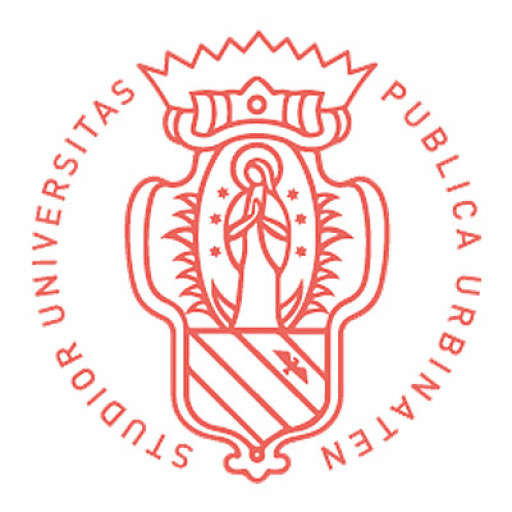The Bachelor of Health Science at Western Sydney University offers students a comprehensive foundation in the core principles of health and well-being, preparing graduates for diverse careers within the health sector. This program is designed to equip students with a broad understanding of health issues, health promotion, and the social, psychological, and biological factors influencing health outcomes. Through a combination of theoretical knowledge and practical experience, students will develop critical thinking skills, evidence-based approaches, and the ability to work effectively within multidisciplinary teams. The curriculum covers essential topics such as public health, health policy, community development, health communication, and health research methods.
Students in the Bachelor of Health Science will have opportunities to engage with real-world health settings through placements and industry projects, fostering hands-on experience that enhances employability. The program emphasizes a holistic approach to health, recognizing the impact of social determinants and advocating for health equity. Graduates will be prepared for a range of careers including health promotion, community outreach, policy development, health education, and roles in non-governmental organizations, government agencies, and healthcare providers.
Western Sydney University’s modern facilities, experienced faculty, and strong links with industry partners provide an enriching learning environment. The program also offers pathways for further study, such as postgraduate qualifications in health-related fields. By completing this degree, students gain the skills and knowledge necessary to contribute meaningfully to improving health outcomes at individual, community, and population levels. The Bachelor of Health Science at Western Sydney University is ideal for individuals passionate about making a positive difference in health and committed to lifelong learning and professional growth.
Program Content:
The Bachelor of Health Science at Western Sydney University offers a comprehensive foundation in health-related disciplines, designed to prepare students for a diverse range of careers in the healthcare industry. The program emphasizes a multidisciplinary approach, integrating biological, psychological, social, and environmental perspectives to understanding health and wellbeing. Students will acquire core knowledge in human anatomy, physiology, public health, and health promotion, equipping them with the skills necessary to analyze health issues and develop effective interventions.
Throughout the course, students will engage in practical learning experiences, including workshops, case studies, and community projects, fostering a hands-on understanding of real-world health challenges. The curriculum also covers important topics such as health research methods, ethics in healthcare, health policy, and management. Students are encouraged to develop critical thinking and problem-solving skills to contribute meaningfully to health services and policy development.
In addition to theoretical subjects, the program provides opportunities for internships and placements with healthcare providers, government agencies, and non-profit organizations, enabling students to gain valuable professional experience and establish industry contacts. The program is designed to be flexible, allowing students to tailor their studies based on their areas of interest, such as public health, health education, or health promotion.
Graduates of the Bachelor of Health Science will be well-prepared for roles in health promotion, community health, policy analysis, research, and other allied health fields. The program also serves as a strong foundation for further study in postgraduate health programs, including master's degrees in public health, health promotion, or related disciplines. Our dedicated faculty, state-of-the-art facilities, and commitment to student success ensure an enriching educational experience that equips graduates with the knowledge, skills, and values to improve health outcomes locally and globally.
- Undergraduate or master degree in any field or graduate degree or graduate certification in just about any field and 2yrs FTE work experience in health
- Health management
- Human biological sciences, medical, forensic, food and pharmacology sciences
- Welfare
- Behavioural Science and sport and diversion fields or 3yrs FTE work experience in a health, welfare or elderly care atmosphere.
The financing options for the Bachelor of Health Science at Western Sydney University are designed to support students throughout their studies. Domestic students may be eligible for various government-funded schemes, including HECS-HELP, which allows students to defer their tuition fees until they are earning a sufficient income. To access this, students need to complete a Commonwealth Assistance form and meet the eligibility criteria set by the Australian government. For international students, fees are payable upfront or through approved payment plans, with tuition costs clearly outlined on the university's official website. Western Sydney University offers various scholarship programs aimed at supporting high-achieving students, students from underserved backgrounds, and those demonstrating significant financial need. These scholarships can significantly reduce the financial burden of the program and are awarded based on academic merit, community involvement, or financial hardship.
Students can also explore external funding sources such as private scholarships, grants, and sponsorships relevant to health sciences studies. The university provides comprehensive financial advice and guidance through its Student Services and Engagement team, helping students understand their options and apply for suitable financial assistance programs. Additionally, some students may qualify for assistance through government loans or income support programs, depending on their individual circumstances. To facilitate affordability, Western Sydney University also offers flexible payment plans, allowing students to spread their fees over time. It is recommended that prospective and current students regularly consult the university's official website and financial services departments to stay updated on the latest funding opportunities, deadlines, and eligibility criteria associated with the Bachelor of Health Science program.
The Bachelor of Health Science at Western Sydney University is a comprehensive undergraduate program designed to provide students with a broad understanding of health-related fields and prepare them for diverse career opportunities within the health sector. This degree emphasizes the development of knowledge in health promotion, disease prevention, health policy, and healthcare systems, enabling graduates to contribute effectively to improving public health outcomes. The program features a flexible curriculum that allows students to explore various specializations, including community health, health promotion, health analytics, and healthcare management. Students have opportunities for practical training through industry placements, which enhance their real-world skills and professional readiness. The program also integrates theoretical coursework with practical applications, ensuring graduates are well-equipped to address current health challenges. Western Sydney University is committed to fostering a learning environment that encourages innovation, research, and community engagement, which are integrated into the Health Science program. Additionally, students can benefit from access to modern facilities, experienced faculty, and partnerships with local health organizations. Graduates of the Bachelor of Health Science are prepared for entry-level roles in health promotion, public health, health service management, and community health organizations. Many pursue further studies in related fields such as Public Health, Health Education, or graduate entry programs for health professions. The program's aim is to produce adaptable, knowledgeable, and skilled health professionals capable of making meaningful contributions to community well-being and health systems.









